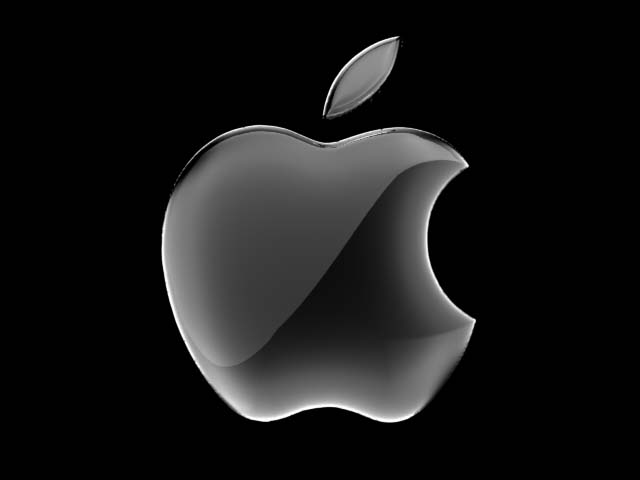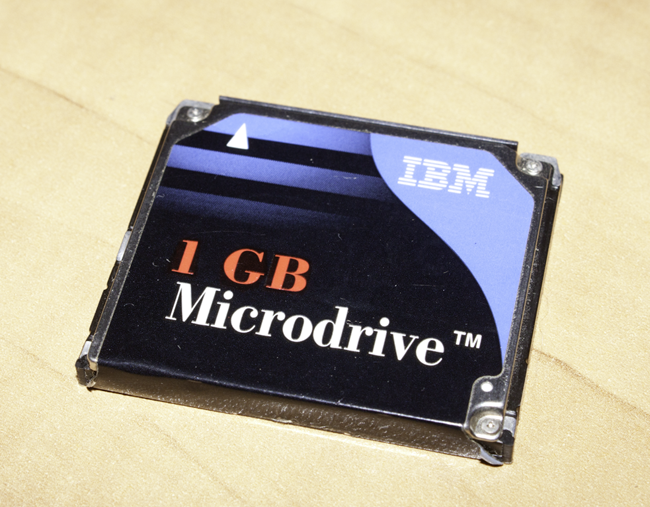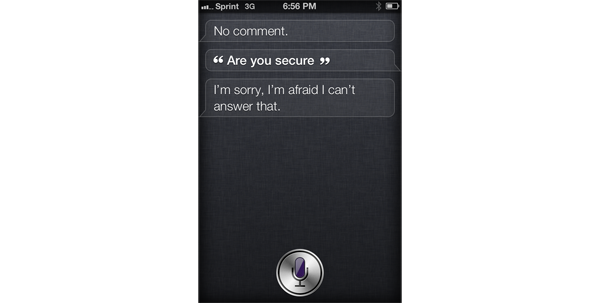Editorials
 There has been a lot of talk recently about the vast difference between the number of Android tablets on the market (around 6 million) and the number of iPad devices (about 30 million). There have been multiple excuses, causes and items to blame for this difference, but one that has been overlooked at almost every level is simply time. The original iPad launched in April of 2010 by comparison the first Android tables (of comparable size) did not hit the market until early 2011. Yes there were 7-inch tablets and even some terrible ones running Android 2.0 that were 10-inch but most of these were very short lived. By comparison the first real Android tablets running Honey Comb (Android 3.0) were not launched until around February/ March 2011. This put them in the market at the same time the iPad 2 was being delivered. Now, if you think that this did not impact sales you are seriously deluded. People are always going to go with what they know and trust. At the same time that the iPad 2 was selling out there was also a large number of iPads hitting the second hand markets (eBay, Craig’s List etc.). This only continued the cycle as people were looking to get these devices from former owners. The next thing that Apple did right was to push these to Target and WalMart. That put them in line with the “price conscious” consumer. After all, if you can buy it at WalMart it must be a good deal right?
There has been a lot of talk recently about the vast difference between the number of Android tablets on the market (around 6 million) and the number of iPad devices (about 30 million). There have been multiple excuses, causes and items to blame for this difference, but one that has been overlooked at almost every level is simply time. The original iPad launched in April of 2010 by comparison the first Android tables (of comparable size) did not hit the market until early 2011. Yes there were 7-inch tablets and even some terrible ones running Android 2.0 that were 10-inch but most of these were very short lived. By comparison the first real Android tablets running Honey Comb (Android 3.0) were not launched until around February/ March 2011. This put them in the market at the same time the iPad 2 was being delivered. Now, if you think that this did not impact sales you are seriously deluded. People are always going to go with what they know and trust. At the same time that the iPad 2 was selling out there was also a large number of iPads hitting the second hand markets (eBay, Craig’s List etc.). This only continued the cycle as people were looking to get these devices from former owners. The next thing that Apple did right was to push these to Target and WalMart. That put them in line with the “price conscious” consumer. After all, if you can buy it at WalMart it must be a good deal right?
So with over a year head start, better marketing and a firm foot hold in the consumer’s mind Apple now has a 24 million unit lead on the Android Tablet. But, let’s look at where the Android Tablet is in reality. In only 6.5 months Android Tablets have managed to carve a 6 million unit hole into what was once Apple’s own playground. This is pretty impressive considering Apple claims that Android is inferior and that their OS is fragmented. If you doubt that Apple is concerned about the sudden success of the Android Tablet, just look at the number of lawsuits in progress where Apple is asking for an outright ban instead of monetary compensation. That above all is a big indicator of their mindset.
But what has really gotten Apple so bothered about this? After all it will take years (probably 2-3 just like the iPhone) for the Android tablet to overtake the iPad so why is Apple trying so hard to kill them now? To put things simply, Apple has a problem with iOS. There are two of them that have to be maintained. The iOS for the iPad is not the same as the iOS for the iPhone. For a developer this is a nightmare as they have to write two versions of their app if they want to cover both products. This is a headache to say the least. With Android and their tile based UI there is no reason to write for more than one screen size and this is with Android 2.3 and 3.0. When Ice Cream Sandwich(ICS) hits the market the division will be almost nonexistent. A developer will be able to write one app and not worry about different screen sizes or versions. This will be huge (right up there with Android’s full support of Flash) and could be an item that will lure some developers away from the Apple camp.
Of course this is not an indication that Developers will leave en masse especially with the fear of being locked out of Apple’s walled garden. It is an indication that more developers are likely to work with Android as the ROI (Return on Investment) is going to be much higher than what they will get doing double the work for Apple.
Although the convergence of ICS on the Android Based tablet is a step in the right direction, there is still a lot that Google has to do to grab a larger market share. They have to find a way to wall off certain apps for the average consumer while still allowing the freedom to explore to the more technical. I have talked to more than a few people about this and there are major concerns with owning an Android tablet. Most of these have to do with the type of content and the danger of malware in the Market. Until this can be dealt with it is doubtful that a larger number of people will shift from the safety of Apple’s iTunes garden and enter the jungle that is present in the Market. Google also has to worry about Microsoft entering the ARM based tablet market sometime in late 2012 or early 2013. Personally I think that we will not see a larger adoption of Android tablets until ICS is in full swing. Once that happens and people see what they can have and do versus what they cannot do with the iPad and iPhone things will change.
Discuss in our Forum
- Details
- By Sean Kalinich
- Hits: 3090
 We have talked about this one over and over and over (is my face getting a little blue?). Microsoft just does not get the market they are trying to sell to any more. Don’t get me wrong, I like Windows 7 and their new server stuff is fantastic (we will be covering a lot of that very soon), however when it comes to putting out hardware or even assisting in hardware production they are clueless. This is doubly true for their mobile division. So far we have heard them put down both Apple and Google saying their products are immature and chaotic respectively. Then we heard Andy Lees (the guy in charge of the Windows Phone Division) comment that the iPhone 4S was a wasted opportunity and that talking to a phone was not productive… I think one of the PR guys needs to pull Andy aside and ask him not to talk quite so much.
We have talked about this one over and over and over (is my face getting a little blue?). Microsoft just does not get the market they are trying to sell to any more. Don’t get me wrong, I like Windows 7 and their new server stuff is fantastic (we will be covering a lot of that very soon), however when it comes to putting out hardware or even assisting in hardware production they are clueless. This is doubly true for their mobile division. So far we have heard them put down both Apple and Google saying their products are immature and chaotic respectively. Then we heard Andy Lees (the guy in charge of the Windows Phone Division) comment that the iPhone 4S was a wasted opportunity and that talking to a phone was not productive… I think one of the PR guys needs to pull Andy aside and ask him not to talk quite so much.
Even beyond Andy putting his foot in his mouth on occasion we now have Steve Ballmer telling us what we should want in a phone OS. His last comments on Mango and in turn the MetroUI were almost pleading in their attempt to get the market (and the consumer) to understand that giant square tiles are a good thing. Guys, they are not. We tried them here at DecryptedTech and they just did not work; just like they are not going to work for Microsoft.
Now, Microsoft has run out of ideas and quite possibly time. They are going to attempt to get the manufacturing cost below $200. Oddly enough this announcement came only a day or two after it was discovered that the iPhone 4S had around $188 in hardware inside its housing. While this will make the devices less expensive to make, and in turn should make them cheaper to buy that will not spell success. You have to not only have a compelling product (which they don’t) but also know how to market it (which they do not). On top of all that you have to offer an infrastructure to support it that makes sense and that people want to use (sorry third strike there Microsoft).
Mr. Ballmer, if you do not believe me about cheaper does not win the market; just take a look at Android tablet sales. In many cases they are $100 less expensive and yet the market still keeps buying the iPad… this is despite better hardware too. In the end you have to have two (no three), Ok three things.
1 a compelling product (not great or even that innovative, just compelling)
2 a great marketing team that knows its stuff and can give the product its own image
3 A legal team to fight off the ones over at Apple.
Picture Credit AllThingsD
Discuss in our Forum
- Details
- By Sean Kalinich
- Hits: 2657
 In talking about Apple (and SIri) over the last couple of days I started to think about what Apple does that is “right”. I know that most of the media and many consumers view almost any Apple product as glorious and Apple can do no wrong. While that is not true there is something important in that mindset and it finally dawned on me why Apple is vital to the future of the computer industry. It is not because they make amazing products with quality second to none.
In talking about Apple (and SIri) over the last couple of days I started to think about what Apple does that is “right”. I know that most of the media and many consumers view almost any Apple product as glorious and Apple can do no wrong. While that is not true there is something important in that mindset and it finally dawned on me why Apple is vital to the future of the computer industry. It is not because they make amazing products with quality second to none.
The fact is they make good products with the same quality as everyone else. If you did not know already every iPhone, iPod and Mac is made by Foxconn over in China. The line that assembles these is very close to the line that builds HP, Dell and others (at least they were the last time I checked). This means that the same level of build quality is present in all of those devices. If you are getting an Apple product there is not some magical line that makes their devices better. The same can be said for the components inside. The A4 and the original A5 found in the iPad2 was not manufactured by Apple it was made by Samsung (which makes the lawsuits very interesting and is another case of Apple biting the hand the fed them). The more recent ones (after April 2011) have been made by TSMC. These are the same guys that make nVidia and AMD GPUs as well as many other ARM processors. Again there is nothing that makes Apple product magically better using either of these companies.
No it is not Apple’s hardware that makes them vital to the tech world. It is also not their software. True the iOS is fast and nimble, just like OSX is. However, it is fast and nimble on a very narrow hardware group. If you take it outside that and manage to get different hardware to work you will find that it is not so quick. 
In short terms the thing that makes Apple crucial and an amazing company is this; No one can sell a product like Apple. You just cannot do it. All you have to do is look back at recent history to see what I mean. For example, let’s take the MP3 player. Long before the first iPod hit there was an MP3 Player from Creative called Nomad that pretty much kicked things off. Many other companies came along and put out MP3 players at the same time, even D-Link had one. 
In fact the MP3 player looked like it was going to fade away when Apple released the iPod with a new device inside, the Micro Drive from IBM (and later Fujitsu). This meant that while other companies were pushing 16, 32 and 128 MB (yes Megabyte) Apple could put 1-2 GB and more space in their products. Later as these drives grew (and the advent of the 1.8-inch drive) the size of the iPod grew while other companies were barely getting by with the smaller amounts of flash memory. Apple’s product was not all that better, it was primitive with basic controls but it was good looking and offered more from the consumer’s point of view. This was even more true when you combined iTunes and the $0.99 song. Apple showed people that they wanted this product. The iPod became a synonym for MP3 player. You can follow this chain through the iPhone and the iPad. On the day the iPhone launched there were more sophisticated phones and phones with better support. However, the iPhone caught the consumer’s imagination. Suddenly they wanted these products. A touch screen phone? With icons. Wow. Of course there had been touch screen Windows Mobile phones and Palm based phones for years before. Still the smart phone market as an entertainment and business tool did not take off until Apple launched the iPhone. It is the same story with the iPad and now Natural Voice Command. Both of these products have been out for a long time, but Apple has been able to make people WANT them.
So you can criticize Apple for their xenophobic ways, their controlling nature, their reprehensible patent policies and legal team (I know I will). In the same breath, anyone in the tech industry should also be thanking them. Without Apple, so many of the cool toys that we love and want would never survive in the market. We might also still have nothing more than boxy and bulky laptops right next to those terrible unstylish off-white cases that were so popular…
Think about it.
Discuss in our Forum
- Details
- By Sean Kalinich
- Hits: 5543
 Has anyone gotten tired hearing about Siri? I mean people are just going on and on about it. People are even interviewing the phone for crying out loud. The funniest thing about it is that some are looking at these interviews with Siri and claiming this is proof that Apple has developed some form of new AI. Ugh… the things some people will believe. Once and for all; Siri is a VERY cool product which can be fun to tinker with, dangerous if you are not careful and an extremely simple concept.
Has anyone gotten tired hearing about Siri? I mean people are just going on and on about it. People are even interviewing the phone for crying out loud. The funniest thing about it is that some are looking at these interviews with Siri and claiming this is proof that Apple has developed some form of new AI. Ugh… the things some people will believe. Once and for all; Siri is a VERY cool product which can be fun to tinker with, dangerous if you are not careful and an extremely simple concept.
We have said this before, but it bears repeating. Siri is a speech to text engine that takes the input and then searches through a series of commands and responses. These are preprogramed and Siri cannot make decisions of judgment calls. If it cannot find it in its internal database as a command or a pre-programed response it will attempt to find it using an online search engine (Google, Bing, Wolfram Alfa…) Once it has a response it then converts that from text back to speech. The algorithm for this is not that complicated and is not much more than an extension of traditional voice commands. In fact I have a remote control sitting in my lab from Amulet Devices that is capable of understanding my commands and looking for the proper responses. If I want to watch an action movie it will search through my collection or in an online catalog for that genre. It can do the same thing with music. I have had this for over a year now, so really Siri is cool but not ground breaking.
This leads me into a rather ridiculous comment made by one of the principal investors in Siri before Apple bought it. Gary Morgenthaler, has said to Cnet that Siri represents a real danger to Google and Microsoft. He also goes on to make a claim that Siri is capable of “understanding” that is simply not true. Siri takes the natural speech and converts that to text that it can respond to. It does not understand anything more than the pre-programed responses. If Siri truly understood it would be able interpret what you are saying and then respond with questions for clarity or with real information. When I asked Siri if it liked Doctor Who, it responded to me with a listing of Doctors within 10 miles all pulled from Google.
Even funnier is that Cnet comments that Siri must be popular because it has spawned a popular blog called Sh** that Siri Says. If this is the case then I guess that the auto correct function on Android and iOS is very popular as well. After all there are multiple sites that are dedicated to just how badly these products screw up what we are trying to say and do… oddly enough, just like Siri does sometimes.
In reality, we have someone riding the popularity of a novel API that is truly in its infancy as far as technology and application. Microsoft, Google and others are all working on similar APIs. Apple just did what they do best, they got to market first with a workable product, but if you look closely you can just make out the duct tape holding parts of it together…
Source Cnet
Discuss in our Forum
- Details
- By Sean Kalinich
- Hits: 4721
 It looks like that interesting rant from an alleged Google developer might have been premature. We are hearing from multiple sources (all who attended the web 2.0 conference) that Google is looking to make amends with its Google+ social networking site. According to most information the biggest item that will be coming down the road (at least the most complained about) is the ability to create pages and also to log in with a name that is not yours (i.e. a pseudonym). This has been a huge complaint since the also ran networking service first kicked off.
It looks like that interesting rant from an alleged Google developer might have been premature. We are hearing from multiple sources (all who attended the web 2.0 conference) that Google is looking to make amends with its Google+ social networking site. According to most information the biggest item that will be coming down the road (at least the most complained about) is the ability to create pages and also to log in with a name that is not yours (i.e. a pseudonym). This has been a huge complaint since the also ran networking service first kicked off.
Of course while the ability to be “someone else” is a big deal there are other items that are coming with the promised updates that are just as interesting (and actually more important). You will be able to integrate your Google Apps account with Google+ in the future as well... and that was about all that they were willing to talk about.
Now I know that this sounds a little disappointing, but it is interesting to hear that these items are coming so soon after such a widely spread “internal memo” that was posted on Google+. It has gotten me to thinking. I never believe in coincidences; especially not when big media companies are involved. It seems to me that we have two events happening very close together that are related. On the one hand we hear the passionate venting of a developer who while praising 99% of what Google does truly wishes they would go that extra step and create a platform for all of their services. A day later Google announces integration with one of its existing platforms and manages to slip in a comment about how off the mark Steve Ballmer was when he said Microsoft is killing Google Apps in the enterprise space.
As taken from the Google Developer’s own rant;
“Any teams that have successfully internalized the notion that they should be externally programmable platforms from the ground up are underdogs -- Maps and Docs come to mind, and I know GMail is making overtures in that direction. But it's hard for them to get funding for it because it's not part of our culture. Maestro's funding is a feeble thing compared to the gargantuan Microsoft Office programming platform: it's a fluffy rabbit versus a T-Rex. The Docs team knows they'll never be competitive with Office until they can match its scripting facilities, but they're not getting any resource love. I mean, I assume they're not, given that Apps Script only works in Spreadsheet right now, and it doesn't even have keyboard shortcuts as part of its API. That team looks pretty unloved to me”
It would seem to me that this is almost flame bait. A Google employee telling it like it is and saying how poor and pitiful Google Docs are compared to Microsoft’s power house of Office. Anyone else think the original rant is for real?
Now I will say this, even with Google Apps Integration (meaning Maps, Docs, Mail etc) you are still not getting anything close to what Facebook can offer you in terms of Social Networking and as far as Google Docs/Apps goes? I have seen a large number of companies move to Google only to switch back to Exchange and Office within a month or two do to security concerns, lack of integration with basic business platforms (like Blackberry) and just plain being annoyed with trying to get everything working the way they want it.
In the end this is one of those times we the line “The Lady doth protest too much, Methinks” is very appropriate. After all you get the accusation followed quickly by the “not true, look at all we are doing” sounds a bit dodgy to me.
Discuss in our Forum
- Details
- By Sean Kalinich
- Hits: 3811
More Articles …
Page 81 of 89



